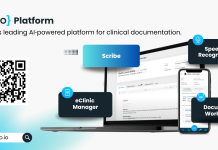Martin McFadyen, Head of Public Sector, Virgin Media O2 Business, explains how local authorities can address the digital skills shortage
Over five million people in the UK lack basic digital skills. And according to the House of Lords Digital Exclusion report, basic digital skills are set to become the UK’s largest skills gap by 2030.
While many take simple tasks like emailing or using online services for granted, these skills remain elusive for millions. This impact on people’s day-to-day experiences cannot be understated, especially as the world becomes increasingly digital.
Mental health, interpersonal connections, employability, and, subsequently, the UK’s long-term economic growth are all at risk.
Digital exclusion is a nationwide challenge
Despite being a national issue, the UK government has come under fire for the lack of attention paid to the growing digital skills shortage and insufficient support to local authorities in tackling it.
Comparatively, digital exclusion has been on the radar of the public and third sectors, including organisations like Good Things Foundation and Digital Unite for decades. Indeed, while digital exclusion is a nationwide challenge, local authorities and community organisations are uniquely positioned to confront these issues head-on.
Tackling the digital skills shortage by overcoming digital infrastructure challenges
Local authorities have all the components to achieve digital levelling up. But there are barriers that they must overcome to make this a reality.
Citizens are increasingly directed to the digital services provided by local authorities, from booking appointments to paying council tax or renewing parking permits. Yet, a recent survey found that 59% of people are dissatisfied with these services, citing a lack of simplicity, slow service speeds and difficulty navigating interfaces.
This exacerbates issues for those lacking digital skills, especially while facing a cost-of-living crisis and should act as a wake-up call for councils to improve digital inclusion efforts.
However, DMS’s report to the Local Government Association found that digital inclusion efforts are lacking. They’re not integrated into their core services, with many councils not having any dedicated resource for digital inclusion.
And they often lack national-level frameworks and guidance that could help them optimise digital inclusion initiatives, creating inconsistency in digital inclusion strategies and levels of effort nationwide.
Investing in digital infrastructure, upskilling, accessibility and technology is essential for local authorities, but they cannot be expected to do this alone. Nor should they be expected to wait on widescale national investment.
The collaborative efforts between the public and private sectors are crucial to achieving digital levelling up. The right partners can provide a framework, knowledge, and resources to local governments across the country, helping them to make the most of their technology, make wiser investments and subsequently, improve citizen outcomes.
Tackling the digital skills shortage together
For local authorities to level up, it is important to tackle the root causes.
There remains rural and (to a smaller extent) urban areas, which are poorly connected, requiring infrastructural improvements at a local level. Extending 4G and 5G networks, working with housing associations to provide accommodation to those at risk of digital exclusion, or creating device recycling schemes are just a few ways that core infrastructural challenges can be addressed by local authorities.
Even outside of big infrastructural changes, there are more practical, day-to-day actions to be made. Local authorities can make use of existing networks and technologies, working with local services, such as libraries, schools and charities like Good Things Foundation to provide free access to devices and programmes which help upskill residents.
And businesses in the technology and telecoms sectors are well-equipped to support local authorities in these ventures. From data and device banks to employer-supported volunteering, local tech aid schemes to tech recycling initiatives, these nationwide programmes can have a great local impact.
For instance, in partnership with the Greater Manchester Combined Authority, we delivered a Local Full Fibre Network social value programme, providing free fibre broadband to 17 public sites throughout the region, including homeless shelters, hospitals, charities and community centres. And over the last year, our Connect More Programme collaborated with local authorities and organisations across the UK to help build digital skills and confidence at community drop-in sessions.
Digital inclusion: Going further with partnerships
While local authorities have a duty to improve the state of digital inclusion in their communities, businesses have the resources and expertise to ensure that these investments go further.
Collaborative partnerships with the private and third sectors can help facilitate digital upskilling opportunities and provide citizens with the spaces and resources to connect digitally.
Together, this will empower local authorities to identify and overcome key barriers in the journey towards digital levelling up.
Through these strategic alliances, a clear roadmap can be developed that addresses the unique needs of local areas and provides essential support in the form of technology, connectivity, resources and skills. Only then can the potential for digital inclusion be extended to every
corner of the UK.











